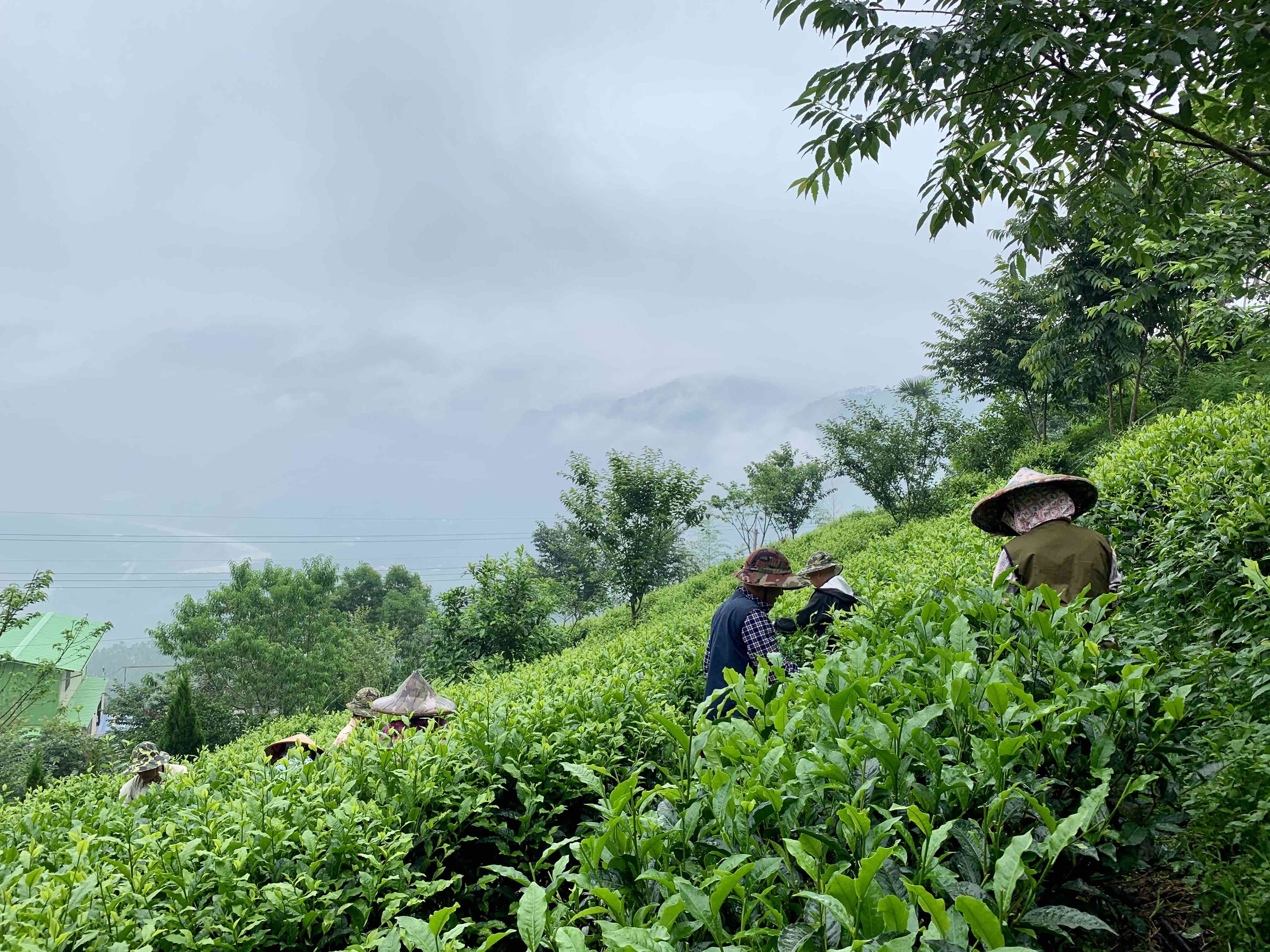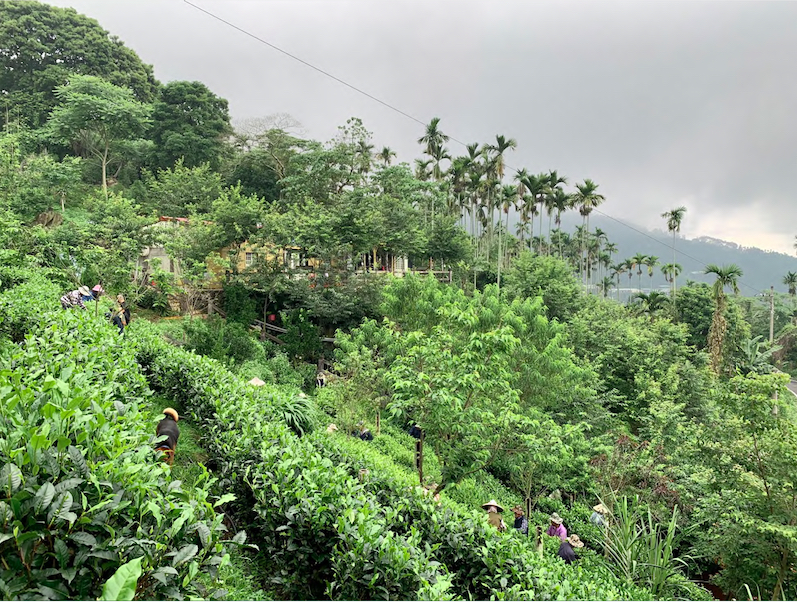TE-BI-KOK is committed to promoting natural, safe, high-quality Taiwanese tea. Moving away from traditional sales models, the company has introduced Taiwanese tea and tea culture through multisensory experiences, allowing the public to gain a new interpretation and understanding of tea.
Following the rise of hand-shaken tea drinks, the number of people brewing tea has gradually decreased. With the rural population growing older and labor moving abroad, the tea making industry has seen a decrease in number of individuals participating in this industry. Master Chang, who has been engaged in tea making since 1980, witnessed the excessive use of agricultural pesticides and the impact of climate change. Therefore, in 2015, he decided to build his dream ecological tea garden in the Gukeng Mountain area of Yunlin, investing in the business of tea and sustainable agriculture.
Symbiotic intercropping
In order not to destroy the original slope of the mountain, it took a year to manually reclaim and prepare the land for the tea garden. In addition, to grow specialty tea, cherry blossom, plum, peach, willow, Hinoki cypress, and Incense Machilus trees were planted manually in the tea garden, giving the tea garden the appearance of a forest. These flowers and fruits provide food for forest animals, reducing damage to the tea trees. The remaining fallen fruits become nutrients for the tea trees and soil, giving the tea a fruity aroma. No pesticides are used in the tea garden, and the bites from smaller green leafhoppers on the tea leaves have become the source of their honey aroma.
Grass cultivation
Tea trees are grown through grass cultivation in the tea garden, and organic fertilizer is applied to cultivate the grass. Once fully grown, the grass is chopped and used to cover the areas around the tea trees, allowing the tea trees to absorb the medicinal properties and trace elements of the grass. Grass cultivation can protect the soil, water and fertilizer, nourish microorganisms in the soil, and improve soil fertility. Good soil quality in the tea garden leads to a bountiful crop, a thriving ecosystem, and increased biodiversity.
Benefits
- The tea garden has a complete ecosystem and food chain, achieving a state of ecological balance. It does not require the use of pesticides and can also reduce waste generation.
- The tea is of high quality, without any pesticides detected, and can be exported to the United States at a high unit price.
- The garden is rich in biodiversity, including yellow-margined box turtles, pangolins, Swinhoe's pheasans, farmland tree frogs, fireflies, etc.
- It has become a cooperation field for tourism, education, and corporate planning CSR

